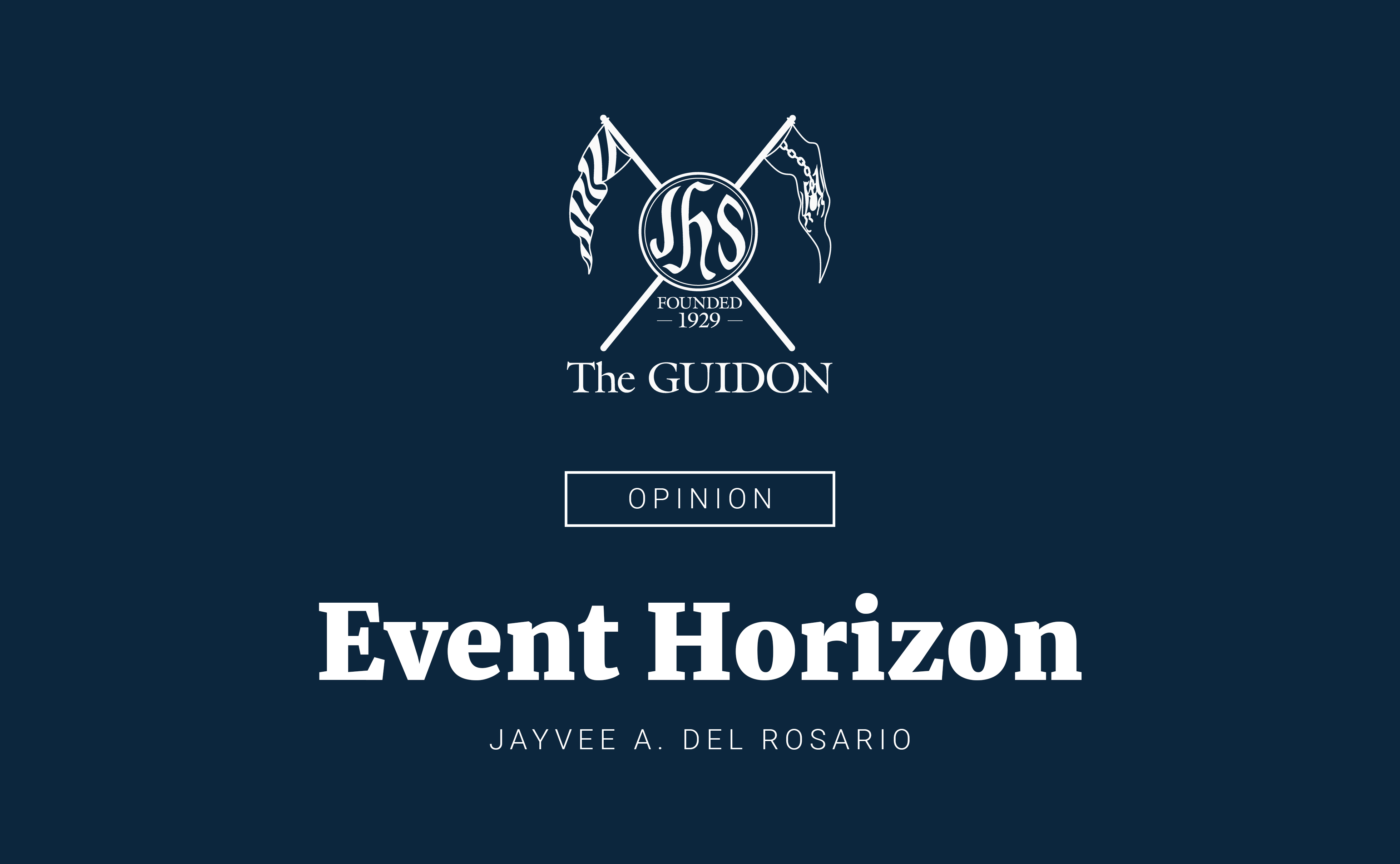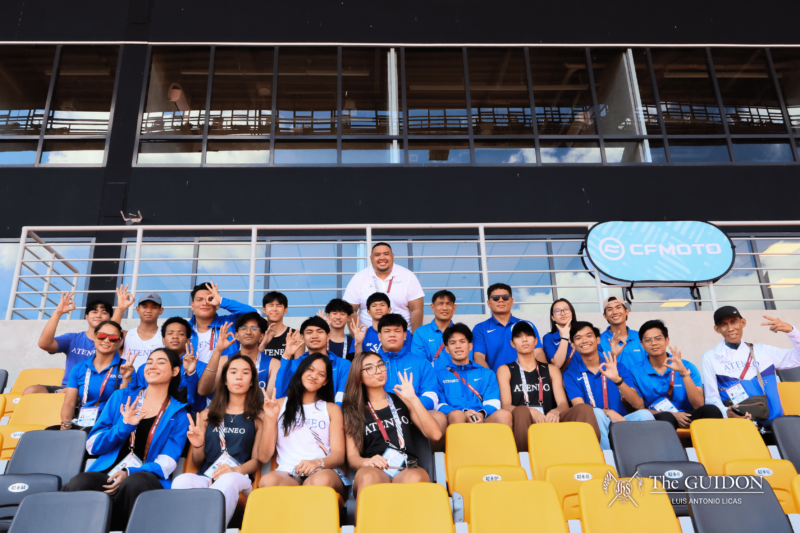It was close to midnight. I was cramming the final paper for my hated class-which-shall-not-be-named hours before the deadline. I didn’t want to cram last minute, but the dread of failure is usually a self-fulfilling prophecy; unprocessed fear leads to paralysis, which has admittedly been the case for me. As I blankly stared at my laptop screen, on the verge of tears and in the middle of a breakdown, I gave up and decided to go for a walk.
That night, I found what I believe to be—cheesy as it may sound—the most awe-inspiring spot in the Ateneo: Sacred Heart Hill, where the Church of the Gesù stands.
It’s easy to overlook Sacred Heart in broad daylight. Sure, it’s the highest point in the University, but a slightly elevated mound of dirt could hardly qualify as particularly awe-inspiring. To experience its beauty, you have to visit in the dead of night, when the surrounding lights are out and all that’s left are the moon and stars. Sit on one of the benches in front of the Gesù and look up.
It isn’t exactly the hill itself that’s alluring, but the view of the night sky it offers. Never would I have thought that there’d be a place like this in the city. Too often the glitz of light pollution distracts us from minding the heavens just as much as it literally clouds our view of the cosmos above.
Still, here they were, moon and stars and all, floating amid an inky vastness I could never wholly comprehend, only gaze at dumbfoundedly. They shined with insouciance to my irksome earthly concerns as the void that enveloped them swaddled me too. The dark was warmth. It was comfort. A stream of nothing that washed away my worries, until they were also turned to naught.
Without these concerns, I was free to wonder. What lies beyond the night sky? What is the point of existence? Is God real? Are we alone in the universe? You know, the usual questions any “profound” Atenean asks after a few classes in philosophy or even SCI 10. The questions you’ll probably roll your eyes over. Yet it’s one thing to ask these questions, and another thing altogether to experience them, realizing that you will never arrive at a conclusion no matter how much you ponder.
Aside from these, I did contemplate on several fanciful (see: absurd) matters too, such as the existence of UFOs, astral projection, Lovecraft, a slew of conspiracy theories, etc. Being a fan of podcasts on supernatural and occult phenomena didn’t help, but I digress. Perhaps what these ruminations say about the value of staring into the cosmos is how they broaden our imagination. In between the universe’s endless expanse and our mortal helplessness, our minds are left with pure possibility.
Is this what Edmund Burke would call an encounter with the “Sublime”? Indeed, there is a certain liberation in confronting a force beyond human control, being made to feel insignificant, and knowing that the universe is and will be despite you. To be ultimately nothing is to be free to exist however you want. The burden you face is but a microscopic speck in the grander scheme of things. Hence, it is precisely in the oppressiveness of the Sublime that we feel most liberated.
I myself would be wrapped up in mundane problems—such as the final paper I mentioned—and think that it’s the end of the world if I don’t get through them. Eventually, presuming that the stakes for these are monumental, I would be too afraid of failure to even act. But gazing at the night sky and reminding myself of my trivial existence gives me the solace to persevere or, should I fail, live and let go.
So take a breather from the minutiae of everyday life. Take a moment to ponder the cosmos and experience its vastness. It feels good to feel small.







